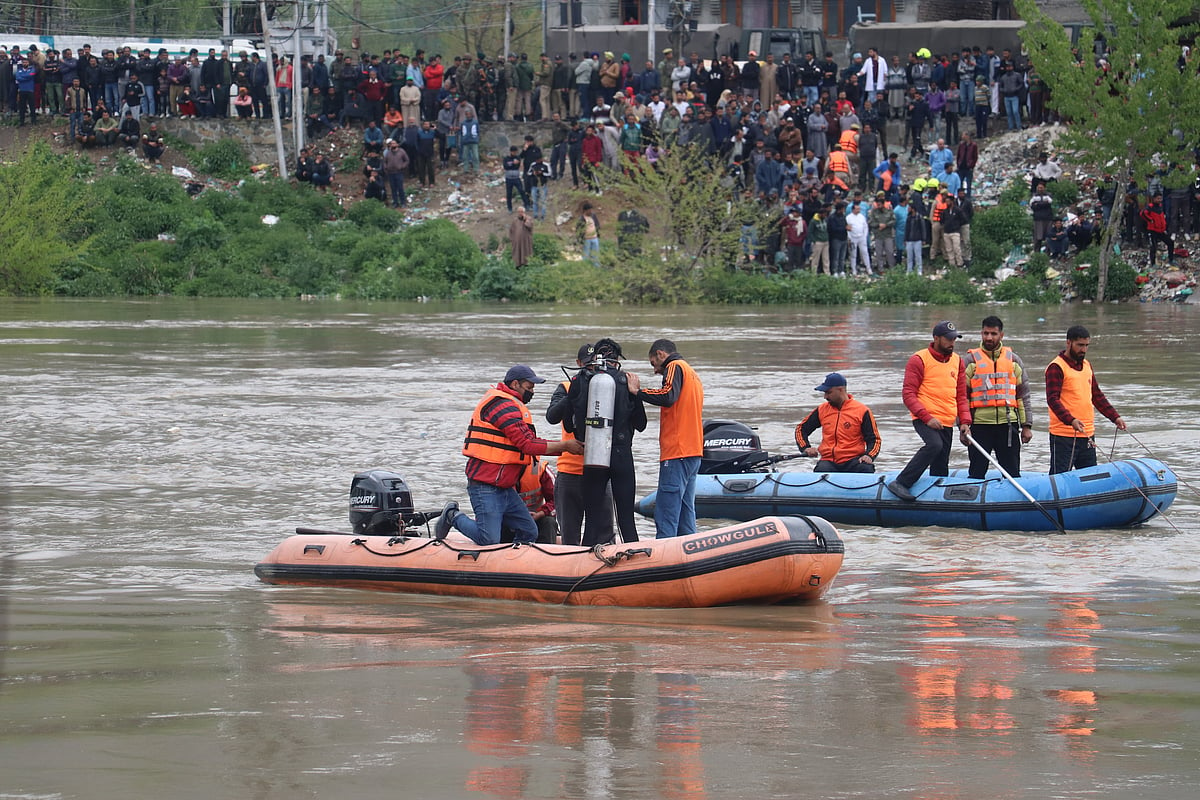Sriharikota (AP): An Indian rocket Monday evening successfully placed into orbit seven satellites – the Indo-French satellite SARAL, the world’s first smart phone-operated nano satellite, a space telescope satellite and four other foreign satellites – in copybook style.
A little after 6 p.m., the rocket – Polar Satellite Launch Vehicle-C20 (PSLV-C20) standing 44.4 metres tall and weighing around 230 tonnes – hurtled towards the skies ferrying the seven satellites together weighing 668.5 kg.
President Pranab Mukherjee witnessed the first of the 10 space missions planned by the Indian Space Research Organisation (ISRO) for 2013 and also the country’s 101th space mission.
With a rich orange flame at its tail and a plume of white fume, the rocket ascended towards the evening skies amidst the resounding cheers of ISRO scientists and a media team assembled at the launch centre.
People perched atop nearby buildings too happily clapped as PSLV-C20 went up towards the heavens.
Space scientists at ISRO new rocket mission control room were glued to their computer screens watching the rocket escaping the earth’s gravitational pull.
At around 18 minutes into the flight PSLV-C20 spat out SARAL satellite. The following four minutes saw the rocket ejecting six satellites in their intended polar orbit.
Immediately on the successfully ejection of the seven satellites, scientists at the mission control centre were visibly relieved and started clapping happily.
Mukherjee congratulated the scientists. “Delighted to witness the remarkable launch of the PSLV. I congratulate ISRO for successfully executing the mission,” he said.
Exuding hapiness, ISRO Chairman K.Radhakrishnan said: “It’s a successfull launch.”
The successful launch of the satellites takes ISRO’s tally of launching foreign satellites to 35. ISRO started putting into space third-party satellites for a fee in 1999 on its PSLV-C2 rocket.
Since then India has been successful in launching medium-weight satellites for overseas agencies. Initially ISRO started carrying third-party satellites atop PSLv rockets as co-passengers of its own remote sensing/earth observation satellites.
In 2007, ISRO for the first time launched an Italian satellite – Agile – as a standalone for a fee.
India began its space journey in 1975 with the launch of Aryabhatta using a Russian rocket and till date, it has completed 102 space missions.
Interestingly the PSLV is carrying seven satellites for second time after having done so in September 2009.
However, the highest number of satellites put into orbit in one go by the PSLV rocket – 10 – was in April 2008.
Two of the SARAL satellite’s payload (ARGOS and ALTIKA) has been supplied by the French National Space Agency CNES while the solid state C-band transponder is from ISRO.
The SARAL will study the sea surface heights and the data generated will be shared by both countries.
Indian space agency officials told IANS the data from SARAL will be useful for operational as well as research user communities in fields like marine meteorology and sea state forecasting; operational oceanography; seasonal forecasting; climate monitoring; ocean, earth system and climate research; continental ice studies; protection of bio-diversity; management and protection of the marine eco-system; environmental monitoring and improvement of maritime security.
According to ISRO, the SARAL satellite is the first under the Indian mini-satellite Bus-series 2 configured for 400 kg satellites.
The Indian space agency states this satellite frame is envisaged to be the workhorse for different types of operational missions in the coming years.
Among the other six satellites that PSLV-C20 would sling into orbit are two Canadian satellites – NEOSSat (Near Earth Object Space Surveillance Satellite), the world’s first space telescope designed by Canadian Space Agency (CSA) and Sapphire satellite built by MacDonald, Dettwiler and Associates (MDA); BRITE and UniBRITE (both Austrian); STRaND-1 (Britain) and AAUSAT (Denmark).
The STRaND-1 (Surrey Training, Research, and Nanosatellite Demonstrator) is the world’s first ‘smartphone satellite’ carrying Google Nexus One phone running on the Android operating system.
The 6.5 kg satellite is a British mission jointly developed by the University of Surrey’s Surrey Space Centre (SSC) and Surrey Satellite Technology Limited (SSTL).
The phone will run several applications, including collection of data and photographing the earth with its camera.
Once all the satellite’s own operating systems have been checked out, key system functions will be transferred to the phone’s components to take control and operate the satellite, SSTL said on its website.
According to CSA, NEOSSat will detect and track asteroids and satellites circling the globe every 100 minutes and scanning space near the Sun to pinpoint otherwise almost invisible asteroids.
The satellite will also be useful in tracking resident space objects, including space debris.
On the other hand, Sapphire will look for resident space objects that include functioning satellites and space debris circling between 6,000 km and 40,000 km above the earth.






